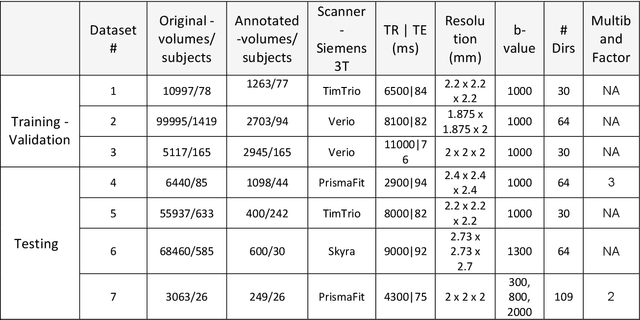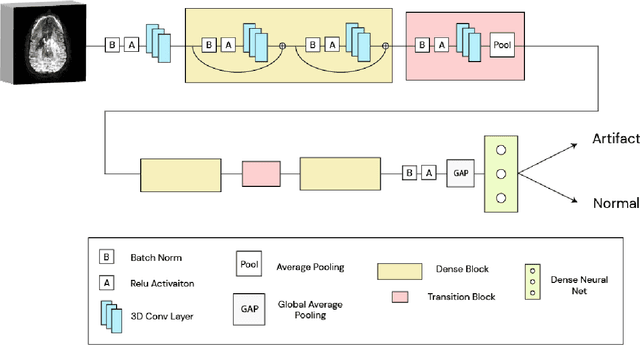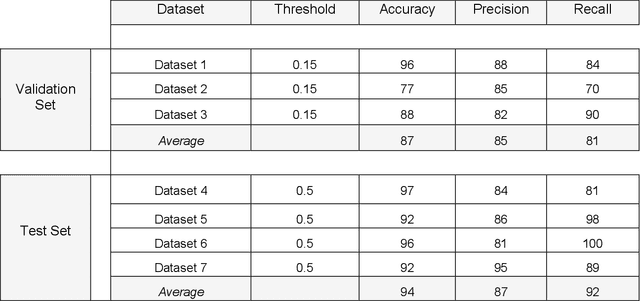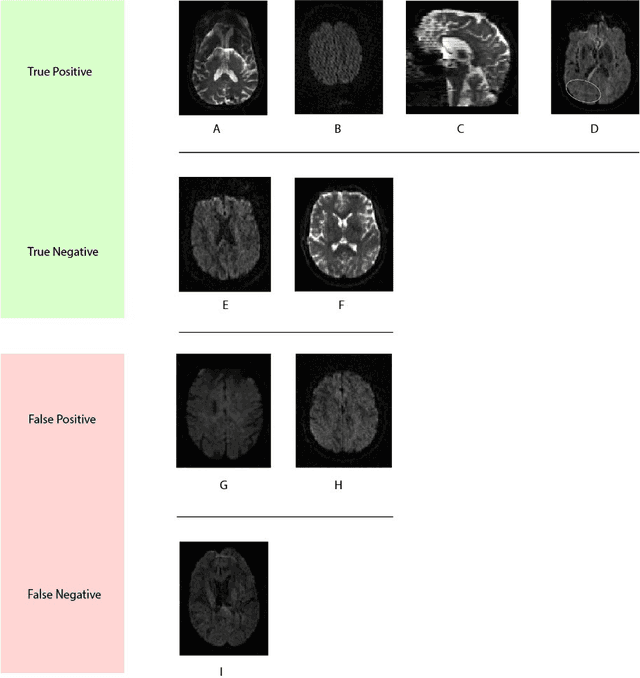3D-QCNet -- A Pipeline for Automated Artifact Detection in Diffusion MRI images
Paper and Code
Mar 09, 2021



Artifacts are a common occurrence in Diffusion MRI (dMRI) scans. Identifying and removing them is essential to ensure the accuracy and viability of any post processing carried out on these scans. This makes QC (quality control) a crucial first step prior to any analysis of dMRI data. Several QC methods for artifact detection exist, however they suffer from problems like requiring manual intervention and the inability to generalize across different artifacts and datasets. In this paper, we propose an automated deep learning (DL) pipeline that utilizes a 3D-Densenet architecture to train a model on diffusion volumes for automatic artifact detection. Our method is applied on a vast dataset consisting of 9000 volumes sourced from 7 large clinical datasets. These datasets comprise scans from multiple scanners with different gradient directions, high and low b values, single shell and multi shell acquisitions. Additionally, they represent diverse subject demographics like the presence or absence of pathologies. Our QC method is found to accurately generalize across this heterogenous data by correctly detecting 92% artifacts on average across our test set. This consistent performance over diverse datasets underlines the generalizability of our method, which currently is a significant barrier hindering the widespread adoption of automated QC techniques. For these reasons, we believe that 3D-QCNet can be integrated in diffusion pipelines to effectively automate the arduous and time-intensive process of artifact detection.
 Add to Chrome
Add to Chrome Add to Firefox
Add to Firefox Add to Edge
Add to Edge